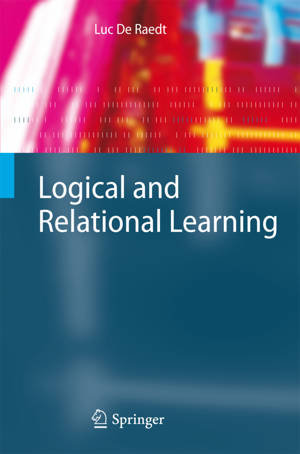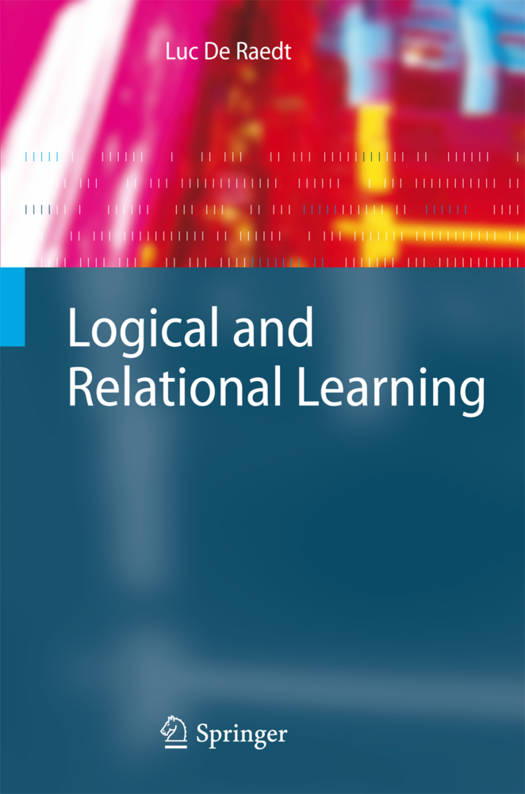
Door een staking bij bpost kan je online bestelling op dit moment iets langer onderweg zijn dan voorzien. Dringend iets nodig? Onze winkels ontvangen jou met open armen!
- Afhalen na 1 uur in een winkel met voorraad
- Gratis thuislevering in België vanaf € 30
- Ruim aanbod met 7 miljoen producten
Door een staking bij bpost kan je online bestelling op dit moment iets langer onderweg zijn dan voorzien. Dringend iets nodig? Onze winkels ontvangen jou met open armen!
- Afhalen na 1 uur in een winkel met voorraad
- Gratis thuislevering in België vanaf € 30
- Ruim aanbod met 7 miljoen producten
Zoeken
€ 52,95
+ 105 punten
Uitvoering
Omschrijving
Iusethetermlogicalandrelationallearning torefertothesub?eldofarti?cial intelligence, machinelearninganddataminingthatisconcernedwithlearning in expressive logical or relational representations. It is the union of inductive logic programming, (statistical) relational learning and multi-relational data mining, which all have contributed techniques for learning from data in re- tional form. Even though some early contributions to logical and relational learning are about forty years old now, it was only with the advent of - ductive logic programming in the early 1990s that the ?eld became popular. Whereas initial work was often concerned with logical (or logic programming) issues, thefocushasrapidlychangedtothediscoveryofnewandinterpretable knowledge from structured data, often in the form of rules, and soon imp- tant successes in applications in domains such as bio- and chemo-informatics and computational linguistics were realized. Today, the challenges and opp- tunities of dealing with structured data and knowledge have been taken up by the arti?cial intelligence community at large and form the motivation for a lot of ongoing research. Indeed, graph, network and multi-relational data mining are now popular themes in data mining, and statistical relational learning is receiving a lot of attention in the machine learning and uncertainty in art- cial intelligence communities. In addition, the range of tasks for which logical and relational techniques have been developed now covers almost all machine learning and data mining tasks.
Specificaties
Betrokkenen
- Auteur(s):
- Uitgeverij:
Inhoud
- Aantal bladzijden:
- 387
- Taal:
- Engels
- Reeks:
Eigenschappen
- Productcode (EAN):
- 9783540200406
- Verschijningsdatum:
- 12/09/2008
- Uitvoering:
- Hardcover
- Formaat:
- Genaaid
- Afmetingen:
- 163 mm x 239 mm
- Gewicht:
- 816 g

Alleen bij Standaard Boekhandel
+ 105 punten op je klantenkaart van Standaard Boekhandel
Beoordelingen
We publiceren alleen reviews die voldoen aan de voorwaarden voor reviews. Bekijk onze voorwaarden voor reviews.











